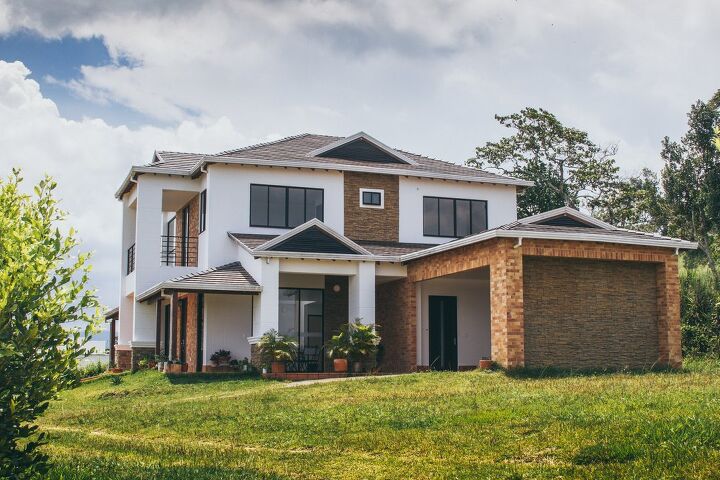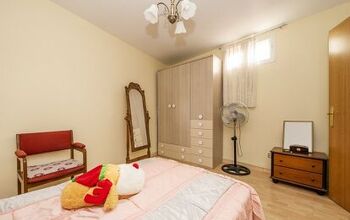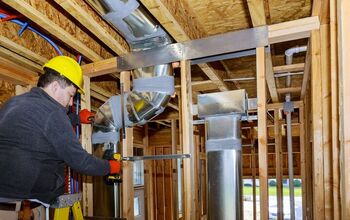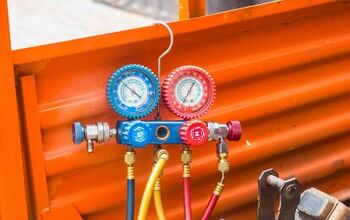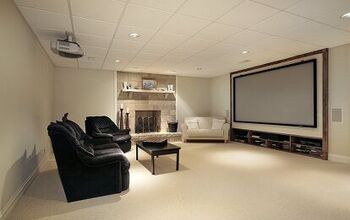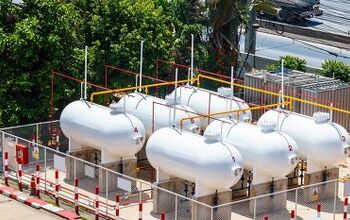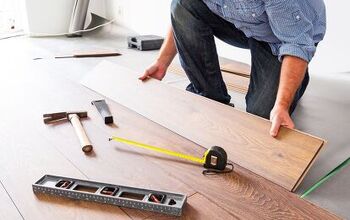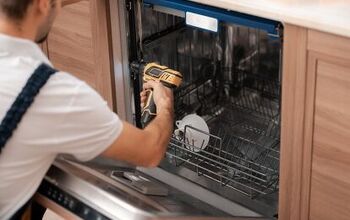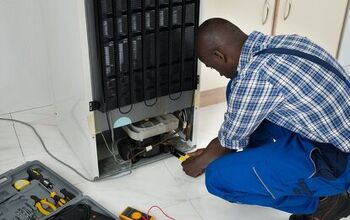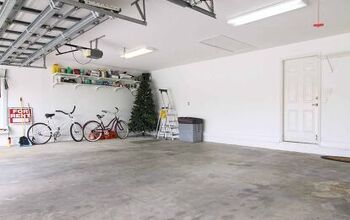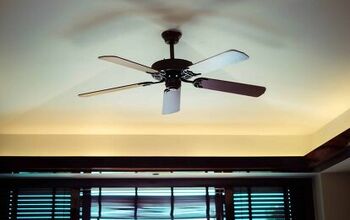How Long To Cool a House From 80 To 72 Degrees?

If you’ve ever experienced a failure of your air conditioning system, then you know how uncomfortable a hot house can be. Plus, when you finally do get your unit up and running again, you still have to wait for things to cool down.
The average air conditioning unit takes about three hours to cool a moderately-sized home roughly ten degrees. Of course, this number can vary depending on things like square footage, outside temperature, and the efficiency of your A/C unit. To cool a house from 80 to 72 degrees, the average A/C would need about 2.5 hours.
It’s never fun when your A/C is being finicky, but it can be especially brutal during the summer months. Luckily, there are a few things you can do to give your unit a bit of a helping hand.
Do You Need Thermostat Installation or Replacement Services?
Get free, zero-commitment quotes from pro contractors near you.

If Your Air Conditioner Is Struggling, It’s Not Necessarily Broken
Your house can take a while to cool down for a number of reasons. If your unit has been off, it’s natural for it to take some time to cool your house.
The next thing to consider is the outside temperature, specifically if it’s hotter than normal. When your air conditioner has to battle against intense outdoor heat, it needs to put up a bit of a fight.
If your A/C is only reading a few degrees above its setting, it’s probably working fine (just harder). The American Society of Heating, Refrigerating and Air-Conditioning Engineers (ASHRAE) calculated what they call “design temperatures” for different cities.
These numbers represent the average temperature range that a city experiences about 99% of the time. When temps surpass the high number air conditioners won’t operate as efficiently.
The good news in this situation is your air conditioner is most likely operating perfectly fine. Still, when it’s that hot outside, you want your house to be as cool as possible. So, what can you do?
How Long Does It Take an AC to Cool a House?
There are a number of factors that impact how long it takes for your AC system to cool down your home. Here are some of the most prevalent:
- How often you change your air filters. Over time, the air filters get caked in dust and debris. When they aren’t switched out regularly, this buildup of dirt will block airflow and cause your AC unit to have to work much harder to cool your home.
- The model and age of your particular AC unit. If you’ve had your AC unit for over 20 years, it’s time for a replacement. Not only will a newer unit cool your home down quicker, it will also cool it more efficiently due to more modern environmental regulations.
- Your home’s insulation. If your home doesn’t have proper insulation, your AC will have to work harder. Your insulation’s purpose is to slow down heat transfer when it’s hot outside and a similar process occurs in the winter months.
- The time of year. Overall, the hotter it is outside, the longer it’ll take for your home to cool down. While proper insulation and closing the curtains help, your AC will still have to work harder in the summer. Here are some strategies to keep a sun-facing room cool.
- The size of your home. The bigger the home, the slower it’ll cool down. For an average, moderately-sized three to four bedroom home, you can expect your AC to take roughly 3 hours to cool it down 10 degrees.
How Can You Get Your A/C To Cool Your House Faster?
If your air conditioner is in good working order, you can speed up the cool-down process. If your A/C just needs some time, there are a few things you can do to help it along.
Step One: Close the Curtains
Close all curtains and shutters so that you can minimize the amount of sun coming into your home.
Step Two: Change Your Air Filter
Make sure to change your air filter if you have not already done so. (More on this below)
Step Three: Turn on Ceiling Fan
If you have ceiling fans in your home, turn them on to help circulate the air and cool things down. Likewise, check your thermostat, and make sure the fan on your unit is set to “on.”
Step Four: Turn on Other Fans
Get a few electric or battery-powered fans and turn them on to full-speed.
Step Five: Avoid Using Appliances
Avoid using appliances that can generate excess heat, like stoves and washing machines, while you are waiting for your house to cool.
Step Six: Keep the Lights Off
Keep your interior lights off or use dimmer switches, unless you use LED bulbs that don’t give off heat.
What If High Temperatures Outside Aren’t To Blame?
Of course, high temperatures aren’t always the cause of a struggling A/C. If your house is getting you hot-and-bothered, and the outside temps are normal, then something else is amiss.
It is possible that your refrigerant levels are low, which would most likely point to a leak. Refrigerant is designed to absorb heat, and if it’s leaking it can’t do its job. You need to call a professional to locate and repair the leak and recharge your system.
Another possibility is that your unit is too small for your home. An HVAC professional will perform extensive calculations to determine the right-sized unit for your house.
These calculations go far beyond your home’s square footage, considering additional factors like windows, orientation, and insulation.
An easy problem to fix is that your air filter could simply need to be replaced. A dirty air filter reduces the amount of air that your system pulls in, making it hard to keep things cool.
Does the Type of Air Filter Make a Difference?
There are numerous types of air filters on the market ranging from simple to very elaborate. While certain filters offer extra assistance with things like allergens and dust, not all air conditioners can handle all filters.
The most important things to consider are the filter size and the MERV rating. The MERV rating is a number between 1 and 13 that indicates how well a filter removes contaminants from the air.
However, the higher the MERV rating, the denser the filter, which means it could potentially even block airflow. This is why it is important to know what MERV-rating your unit can support.
Most newer units can accept a MERV-rating of up to 8 but check your specific unit before purchasing a filter. You also need the appropriate size filter for your return, otherwise, dust and contaminants can pass directly into your unit. When these elements get into your system, they can shorten your unit’s overall lifespan.
How Important Is Ductwork When It Comes To Keeping Things Cool?
One big factor that is sometimes overlooked when it comes to an inefficient A/C unit is the ductwork. Many people jump to the conclusion that if their air conditioner is broken, they just need to get a new one.
While you definitely need to replace a broken A/C, this alone might not solve your problem. Ductwork plays a large role in how efficiently your home is cooled.
If you have leaky ducts, then you could potentially be losing between 20% to 30% of your cool air. Cool air escapes through leaks into places like the attic, instead of flowing directly to where you need it.
What If the A/C Unit Needs To Be Replaced?
If it is determined that you need a new air conditioner, consult with an HVAC professional. An expert should inspect your entire system, including ductwork, in order to pinpoint your exact issues.
Based on his assessment, your HVAC pro will make recommendations of what you need to do to properly and efficiently cool your home.
Depending on several factors, you can expect to pay anywhere from $3,000 to upward of $20,000. The price depends on your home size, type of unit, and if you need all new ductwork, among other things.
What Size A/C Unit Is Right for My Home?
You might think that getting a larger unit than necessary will make your A/C work better. However, installing a unit that is too small or too large will actually create an inefficient system.
It’s important to get the proper size unit for your home, which is why you want a trusted expert to assess your house. You may have heard A/C units referred to as 1.5-ton or 18,000 BTUs (British Thermal Units).
These numbers indicate the cooling capacity of an A/C unit and come in several standard sizes:- 5-ton (18,000 BTU)
- 0 -ton (24,000 BTU)
- 5-ton (30,000 BTU)
- 0-ton (36,000 BTU)
- 5-ton (42,000 BTU)
- 0-ton (48,000 BTU)
- 0-ton (60,000 BTU)
At a quick glance, you can estimate what size unit you will need based on your home’s square footage. For example, a 2,000 square foot home might need a 3.5-ton unit, compared to a 1,500 square foot home that needs a 3-ton unit.
However, there are many other factors that need to be considered, including the region you live in and average temperatures. Therefore, it is in your best interest to get the recommendation of a professional.
Note: Don’t just assume you need to replace your existing unit with the same size. It might have not been the right fit for your home in the first place!
How Long Does the Average A/C Unit Last?
The average lifespan of an air conditioner is about 15 to 20 years. However, this can vary based on a number of different things like maintenance and workload.
Related Questions
How often should you change your air filter?
How often you change your filter depends on the type and quality of your filter. Normally, an average filter is changed once a month. However, higher-quality filters are designed to last for up to 90 days and keep out more contaminants.
Do You Need Thermostat Installation or Replacement Services?
Get free, zero-commitment quotes from pro contractors near you.

Wrapping Up
If your A/C doesn’t seem to be doing its job, don’t immediately think the worst. There could be several reasons your unit is running a little hot.
It’s normal for an A/C to run a little higher than its setting when outdoor temps are intense. If a unit has been off for a while, it’ll take about 2 to 3 hours until you feel relief.
If your air conditioner needs a little extra attention, start with simple fixes, and call in a pro if necessary. Whatever you do, stay calm and don’t lose your cool.
Related Guides

Stacy Randall is a wife, mother, and freelance writer from NOLA that has always had a love for DIY projects, home organization, and making spaces beautiful. Together with her husband, she has been spending the last several years lovingly renovating her grandparent's former home, making it their own and learning a lot about life along the way.
More by Stacy Randall



